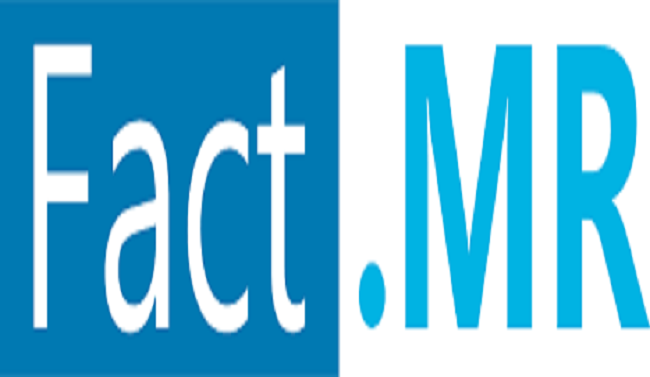Rising Need for Pathogen Detection Boosts Commercial Use of PCR Reagents

The global PCR reagents market, valued at US$ 1.25 billion in 2022, is projected to grow at a robust CAGR of 6.4%, reaching US$ 2.32 billion by 2032.
The Polymerase Chain Reaction (PCR) reagents market has become a cornerstone of molecular biology and diagnostic technologies. PCR reagents are essential components of the PCR process, enabling the amplification of DNA and RNA for various applications in research, diagnostics, and industrial processes. The widespread use of PCR in detecting pathogens, analyzing genetic material, and advancing precision medicine has solidified its importance across numerous sectors. As innovations in molecular diagnostics continue to emerge, the PCR reagents market is witnessing significant growth, driven by increasing demand for rapid and accurate testing solutions.
Market Insights
PCR reagents include key components such as DNA polymerases, primers, nucleotides, buffers, and stabilizing agents. These components are crucial for the success of PCR in amplifying genetic material with high specificity and efficiency. Advances in reagent formulations have improved the sensitivity, speed, and reliability of PCR, making it a preferred tool in various scientific and medical fields.
One of the primary drivers of the PCR reagents market is the increasing adoption of PCR in healthcare diagnostics. From detecting infectious diseases such as COVID-19, influenza, and HIV to identifying genetic mutations in cancer and hereditary disorders, PCR-based diagnostics have become indispensable. Additionally, PCR is widely used in research settings for applications like gene cloning, sequencing, and studying gene expression.
The market also benefits from the evolution of PCR technologies, including real-time PCR (qPCR) and digital PCR (dPCR), which offer enhanced accuracy and quantification capabilities. These advancements have expanded the use of PCR reagents beyond traditional research laboratories to point-of-care settings, food safety testing, and environmental monitoring.
Dynamics and Growth Factors
Several dynamics and growth factors are shaping the PCR reagents market. One significant factor is the growing prevalence of infectious diseases and the subsequent need for rapid diagnostic tools. The COVID-19 pandemic underscored the critical role of PCR in identifying and managing outbreaks, driving an unprecedented demand for reagents and kits. Even post-pandemic, the global focus on improving preparedness for infectious disease outbreaks continues to fuel market growth.
Another key driver is the increasing emphasis on personalized medicine. PCR plays a vital role in precision medicine by enabling the detection of genetic mutations, biomarker analysis, and monitoring treatment responses. This trend is propelling the demand for high-quality PCR reagents that deliver reliable and reproducible results in clinical settings.
Additionally, advancements in biotechnology and genomics are expanding the use of PCR reagents in emerging applications such as liquid biopsy, epigenetic studies, and gene editing. The integration of PCR with next-generation sequencing (NGS) workflows is further enhancing its utility in genetic research, creating new opportunities for reagent manufacturers.
Government initiatives and funding for genomics research and disease surveillance programs are also contributing to market growth. Many countries are investing in diagnostic infrastructure and molecular biology research, driving the demand for PCR reagents. Furthermore, the expansion of biotechnology startups and contract research organizations (CROs) is amplifying the need for reliable reagents to support diverse projects.
List of Key Companies Profiled in The Report
- Bio-Rad Laboratories, Inc.
- Thermofishers
- Merck KgaA
- Agilent Technologies, Inc.
- Biotium
- MiRXES Pte Ltd
- GeneDireX, Inc.
- Norgen Biotek Corp
- Takara Holdings Inc.
- Others
Notable Developments
The PCR reagents market has seen remarkable advancements in product innovation and industry collaboration. For instance, the development of multiplex PCR reagents has enabled the simultaneous detection of multiple targets in a single reaction, saving time and resources in diagnostics and research.
Digital PCR (dPCR) is another area of notable growth, with reagents tailored to this technology gaining popularity for their precision and quantitative capabilities. dPCR is increasingly used in applications such as rare mutation detection, absolute quantification of nucleic acids, and quality control in biopharmaceuticals.
Collaborations between biotechnology companies and academic institutions are driving innovation in PCR reagents, leading to the development of novel enzyme formulations and improved buffer systems. These advancements aim to enhance the efficiency and versatility of PCR workflows.
Moreover, automation is transforming the market, with reagent kits designed for high-throughput systems gaining traction. Automated systems not only improve reproducibility but also reduce the manual workload, making them attractive for clinical and research laboratories.
Competitive Landscape
The global PCR reagents market is highly competitive, driven by rising diagnostic testing demand and the launch of novel reagents. Key players like Bio-Rad and PCR Biosystems are boosting sales through innovative products.
In March 2021, PCR Biosystems introduced IsoFast Bst Polymerase reagents for faster RNA and DNA amplification. In April 2020, Bio-Rad expanded into precision medicine and molecular diagnostics by acquiring Celsee, Inc., a single-cell analysis solutions provider.
- Art
- Causes
- Crafts
- Dance
- Drinks
- Film
- Fitness
- Food
- Games
- Gardening
- Health
- Home
- Literature
- Music
- Networking
- Other
- Party
- Religion
- Shopping
- Sports
- Theater
- Wellness


